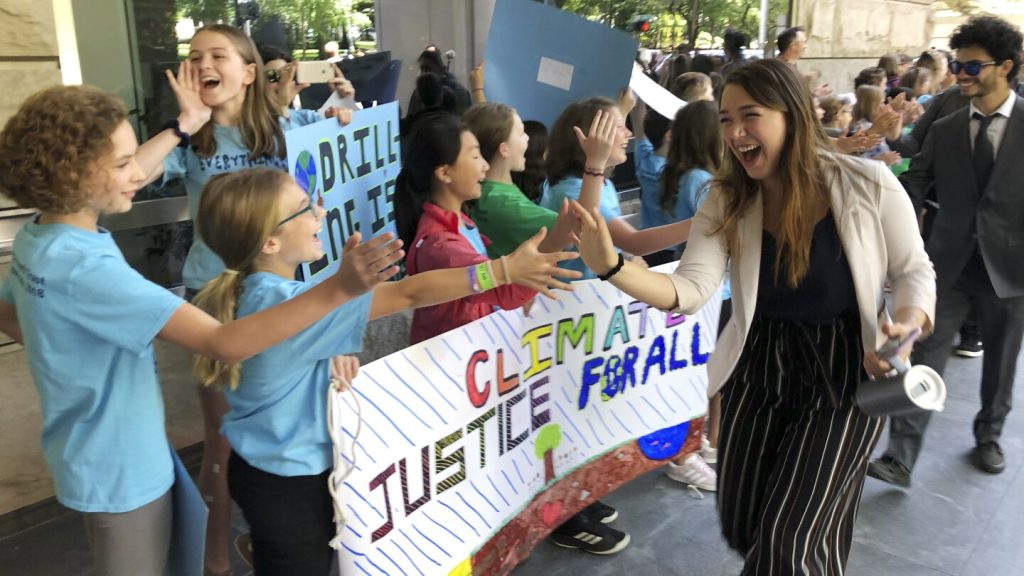The federal appeals court panel rejected a lawsuit brought by young Oregon-based climate activists who argued that the U.S. government’s role in climate change violated their constitutional rights. The 9th U.S. Circuit Court of Appeals previously ordered the case dismissed in 2020, stating that determining climate policies should be left to politicians, not judges. Despite this, U.S. District Judge Ann Aiken allowed the activists to amend their lawsuit, leading to a ruling last year that the case could go to trial. However, acting on a request from the Biden administration, a three-judge 9th Circuit panel issued an order requiring Aiken to dismiss the case, which she did. The nonprofit law firm representing the activists is considering asking the 9th Circuit to rehear the matter with a larger slate of judges.
One of the activists, Avery McRae, expressed frustration with the continuous attempts to squash the case and silence their voices. The case, known as Juliana v. United States, had been closely watched since it was filed in 2015. The 21 plaintiffs, who were between the ages of 8 and 18 at the time, argued that they have a constitutional right to a climate that sustains life, and that the U.S. government’s actions encouraging a fossil fuel economy despite scientific warnings about global warming are unconstitutional. The lawsuit faced challenges from the Obama, Trump, and Biden administrations, with their lawyers arguing that the lawsuit was attempting to direct federal environmental and energy policies through the courts rather than through the political process. A trial was halted in 2018 by U.S. Supreme Court Chief Justice John Roberts just days before it was set to begin.
In a separate successful climate lawsuit brought by young people, the Montana Supreme Court upheld a decision requiring regulators to consider the effects of greenhouse gas emissions before issuing permits for fossil fuel development earlier this year. This case was also brought by Our Children’s Trust, the nonprofit law firm representing the activists in the Juliana v. United States case. The organization has been filing climate lawsuits in every state on behalf of young plaintiffs since 2010. The outcome of the Juliana v. United States case emphasizes the ongoing challenges faced by climate activists in seeking legal remedies for government actions that contribute to climate change. While some cases have been successful, others face significant hurdles in the legal system, highlighting the complex nature of addressing climate change through litigation.
The rejection of the Juliana v. United States lawsuit by the federal appeals court panel underscores the ongoing debate over the role of the judiciary in addressing climate change. The decision to dismiss the case and require it to be handled by politicians rather than judges reflects a belief that climate policies should be determined through the political process rather than through legal action. As climate activists continue to push for legal remedies to hold governments accountable for their contributions to climate change, the court’s ruling serves as a reminder of the challenges they face in seeking justice through the legal system. Despite the setback in this case, the fight for climate justice is likely to continue through other avenues, including legislative initiatives and grassroots activism.
The rejection of the lawsuit highlights the complexities of addressing climate change through the legal system and the challenges faced by young activists seeking to hold the government accountable for its role in exacerbating the climate crisis. The decision to dismiss the case and uphold the role of politicians in setting climate policies underscores the need for a coordinated effort to address climate change through multiple channels, including legislative action, grassroots activism, and international cooperation. While the outcome of the case is disappointing for the young activists involved, it serves as a reminder of the importance of continued advocacy and engagement in the fight against climate change.


